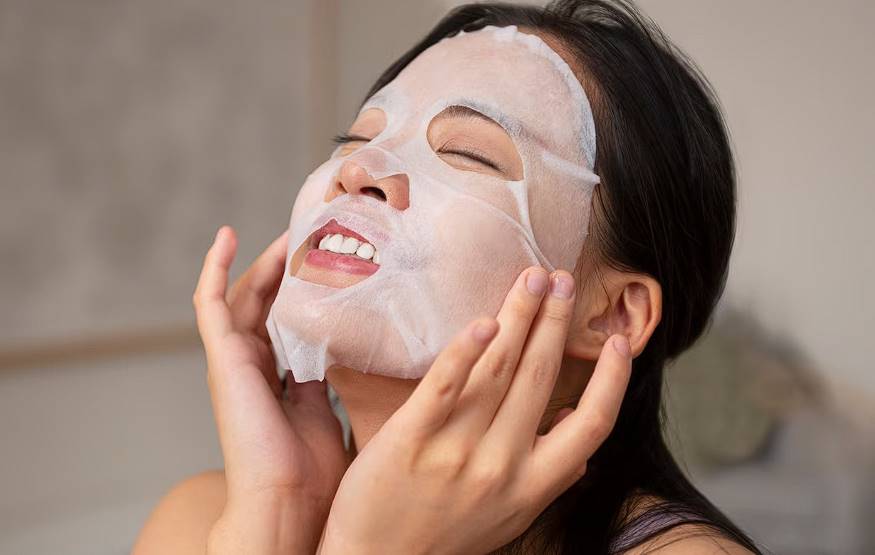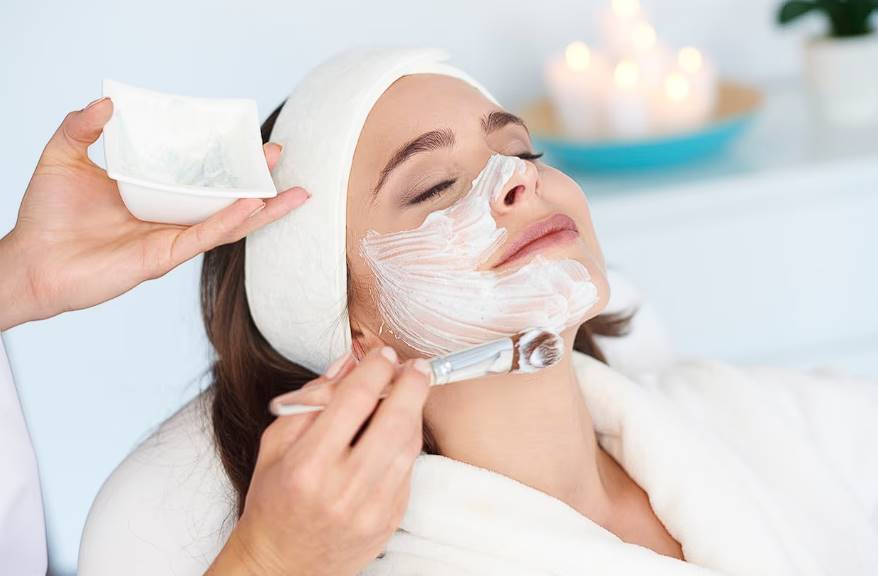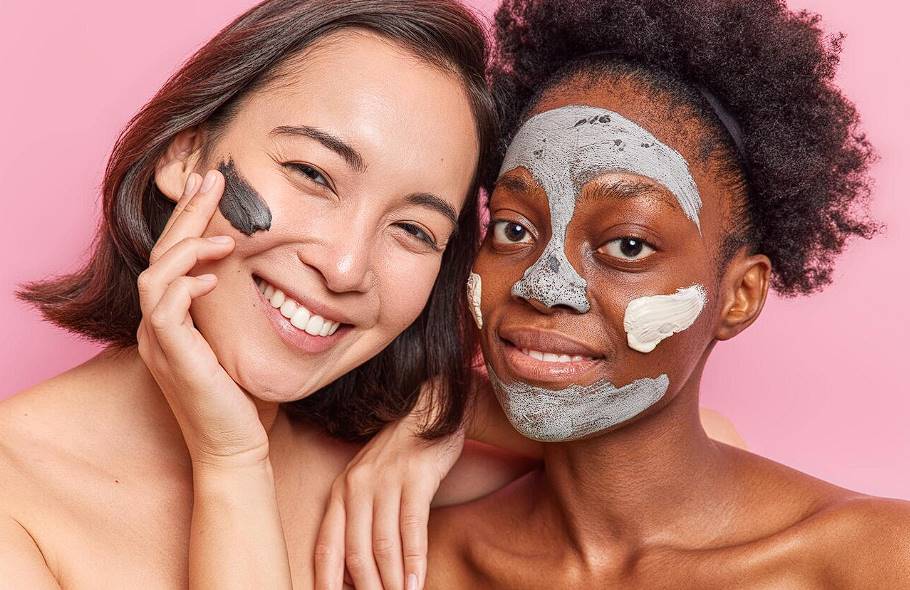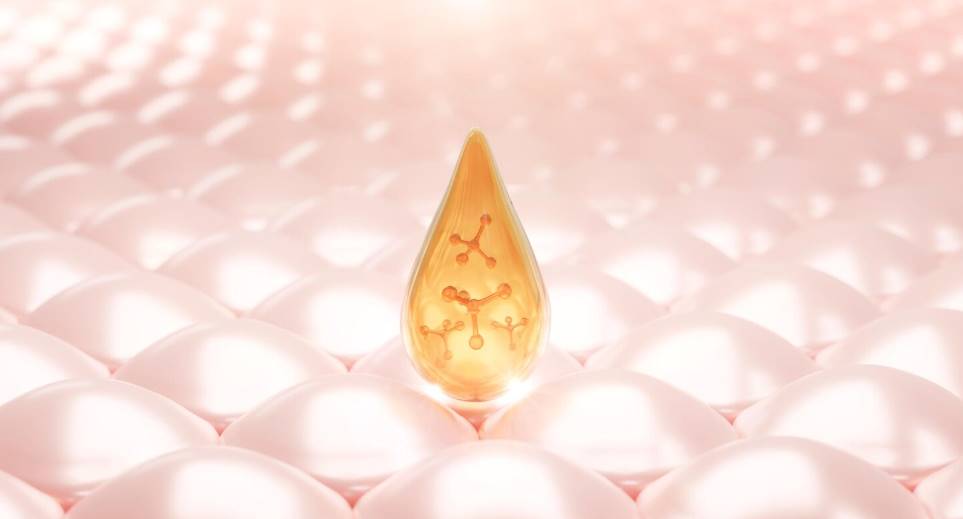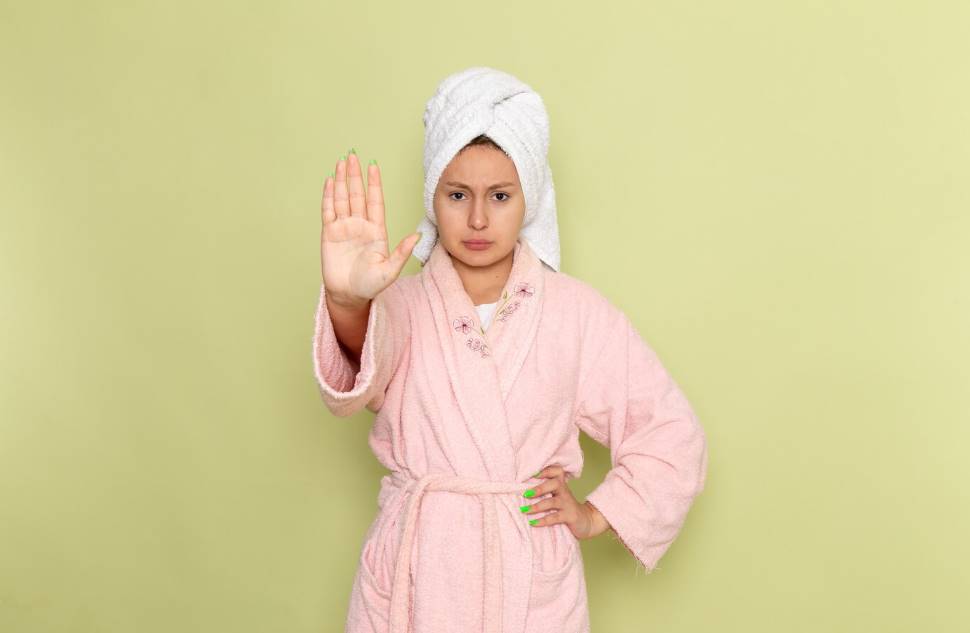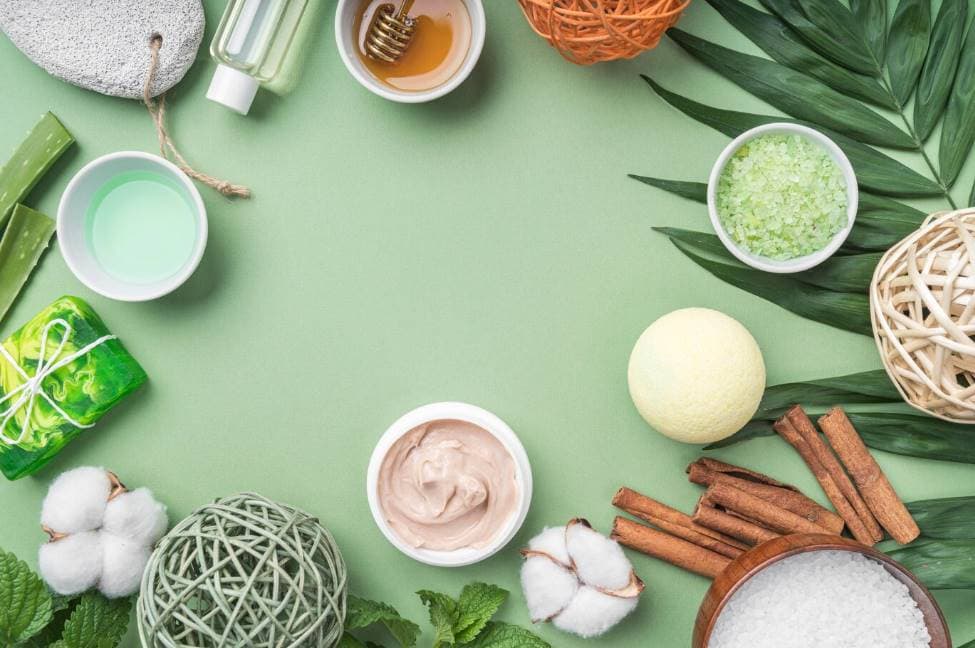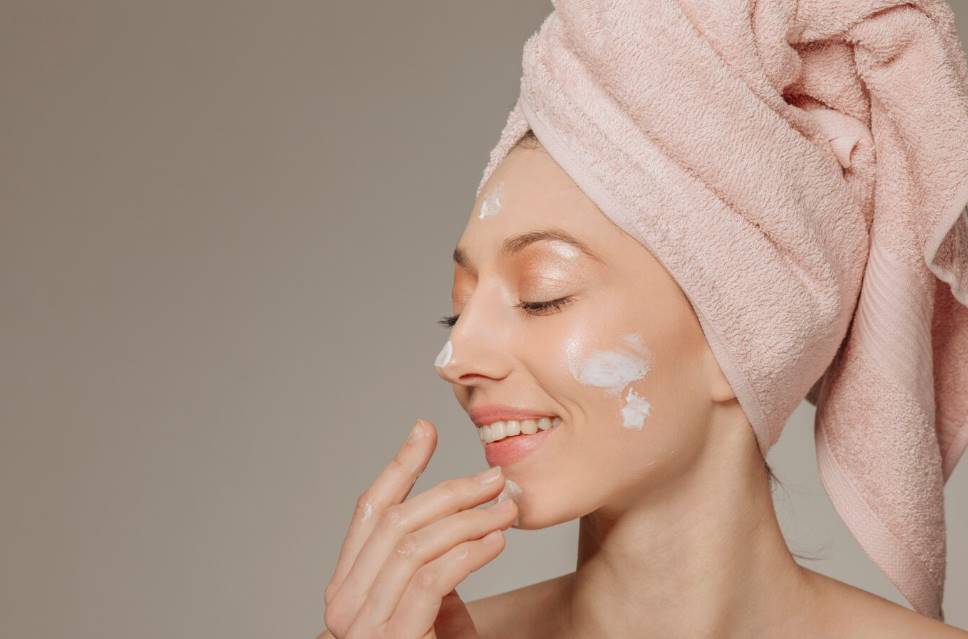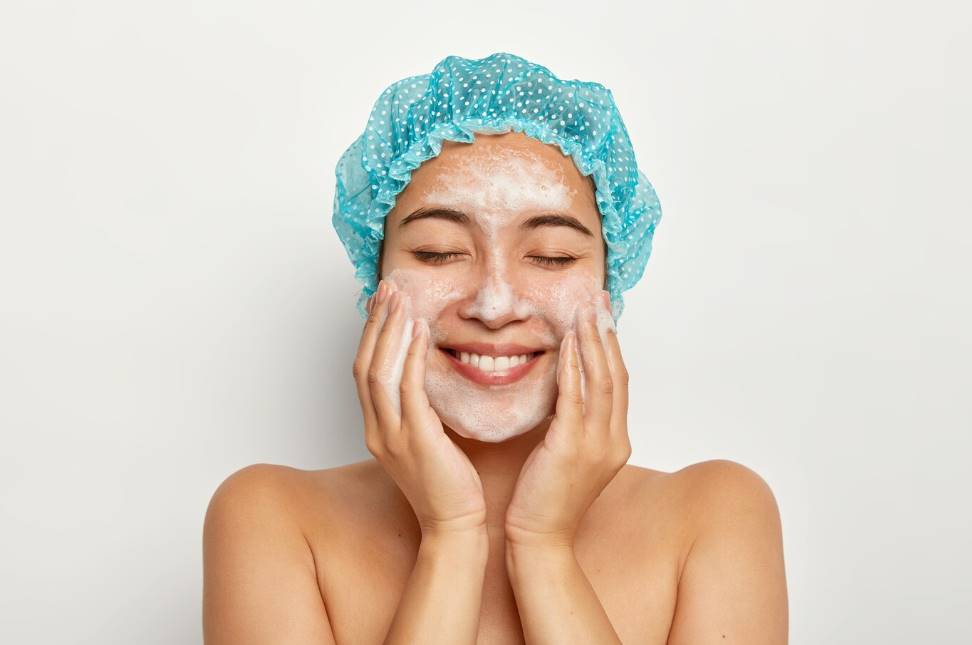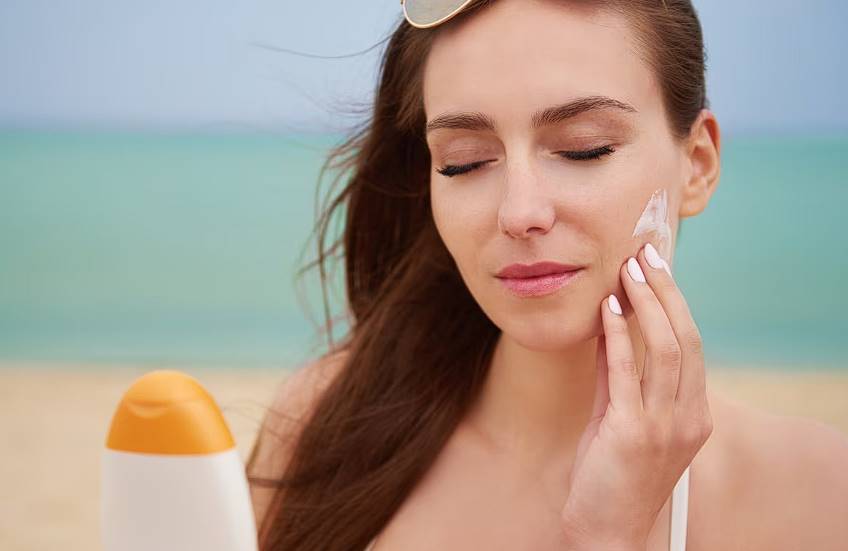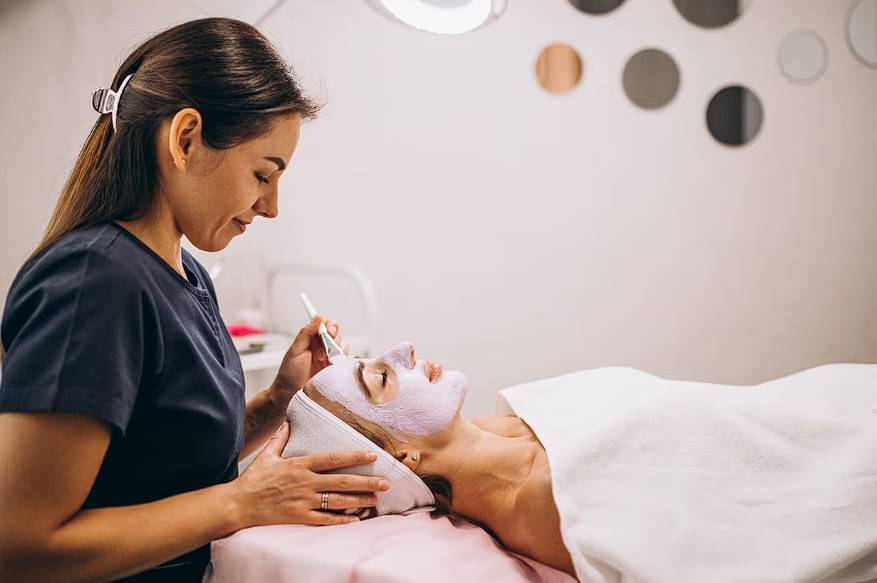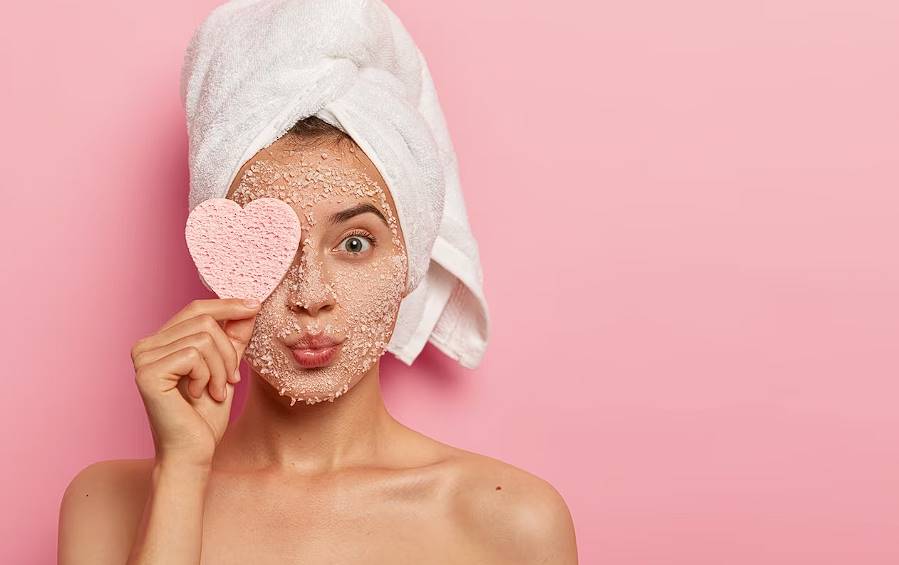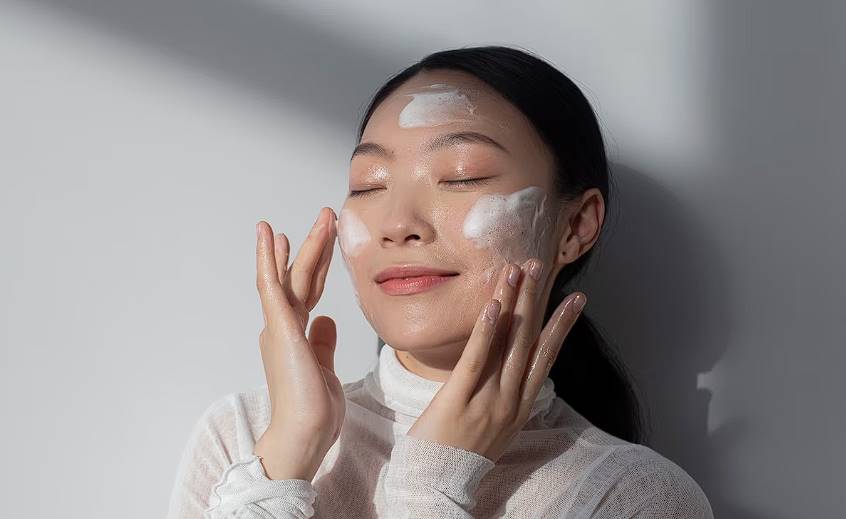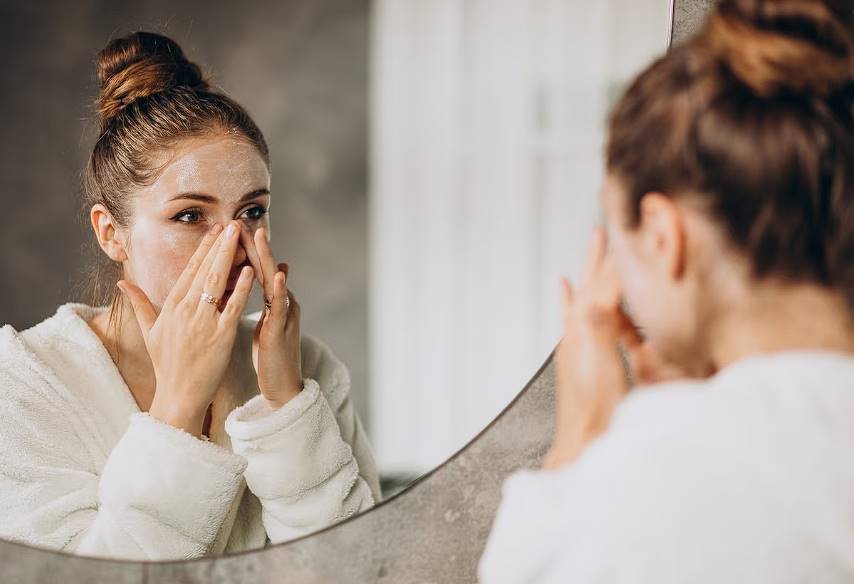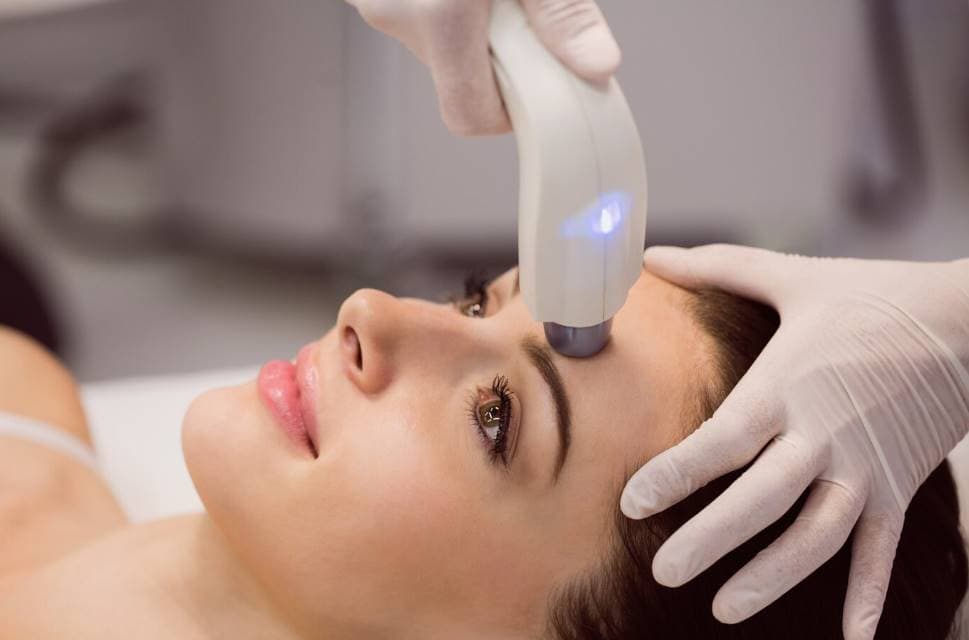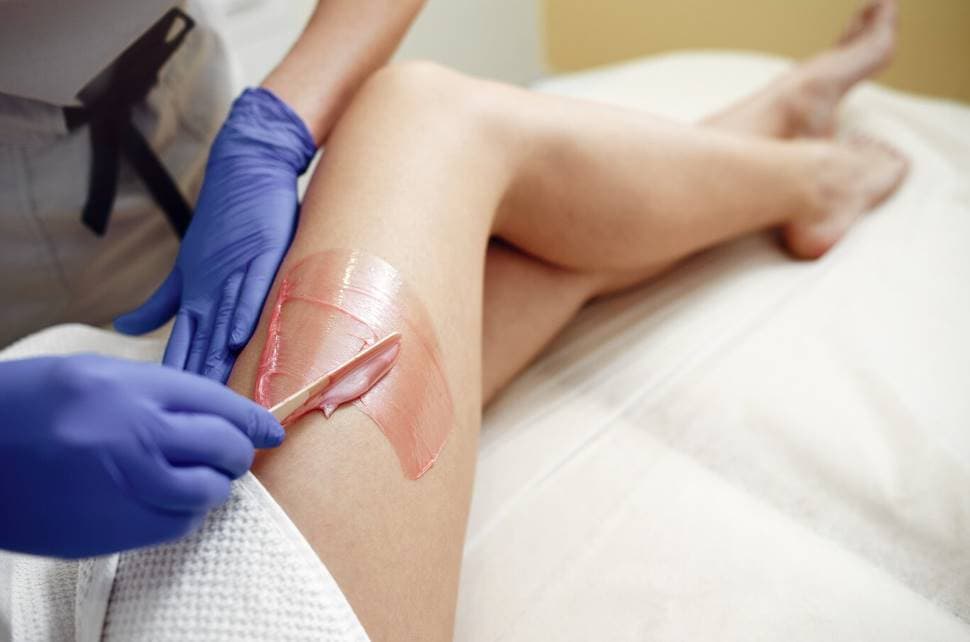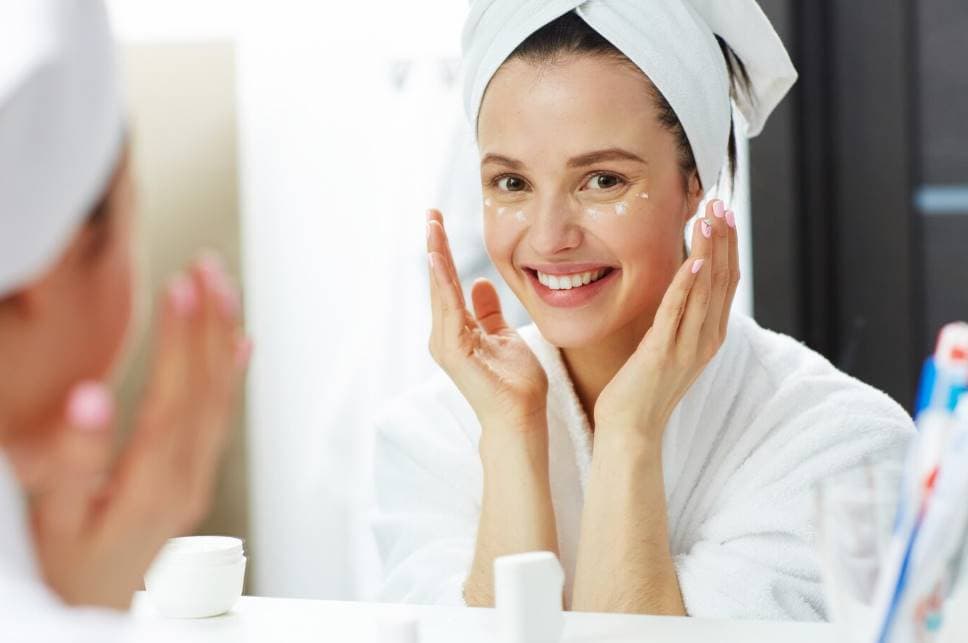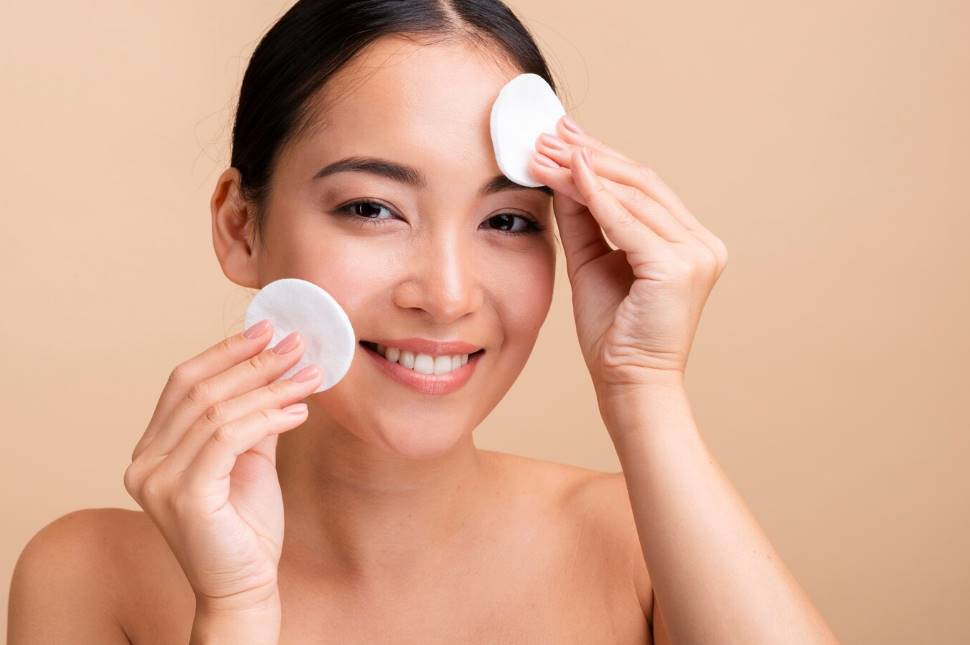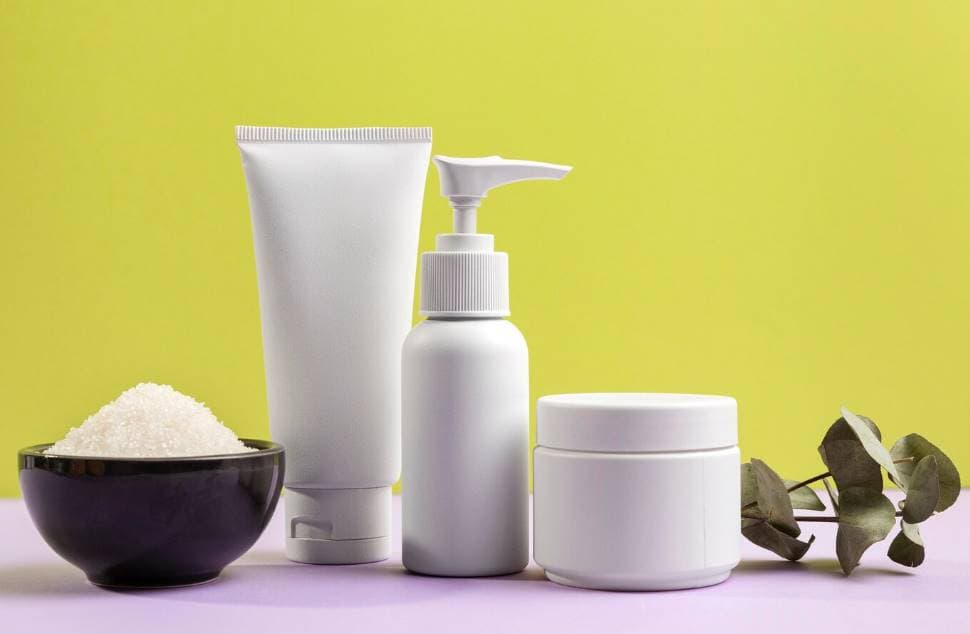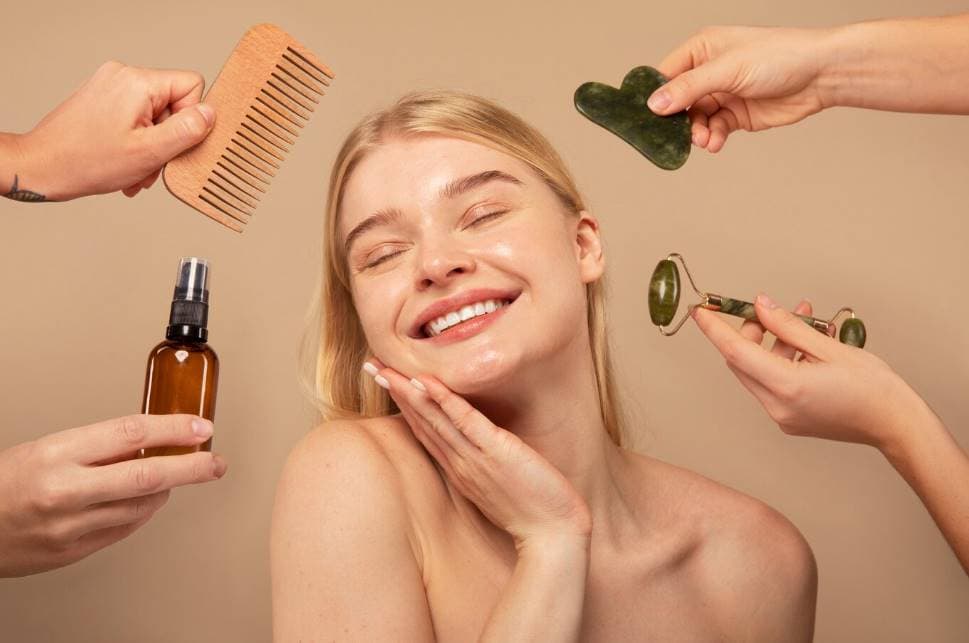Finding the best face mask for clear skin is like discovering the ideal custom solution for your skin. It's not enough to have a short-lived flush of health and vigour; your skin should maintain that glow over time. For clear skin, use a face mask with components known for their purifying, balancing, and revitalising effects.
If you're looking to cleanse your skin, a clay mask filled with natural substances like kaolin or bentonite is a great option. The use of these clays will leave your skin looking brighter and more refined by removing impurities, soaking up excess oil, and opening up your pores.
Activated charcoal masks are also fantastic for reducing the appearance of imperfections. Activated charcoal can draw out impurities and poisons from the skin's surface like a magnet. This thorough washing aids in clearing up acne and revealing a more radiant skin.
Acne-causing bacteria can be effectively combated by applying a mask enhanced with tea tree oil, which is known for its antibacterial characteristics. In addition to reducing the appearance of current acne, tea tree oil can help prevent future breakouts from occuring.
Niacinamide, commonly called vitamin B3, is another potent component for radiant skin. Reduce redness, soothe irritated skin, and encourage a more even skin tone with niacinamide, thanks to its anti-inflammatory and antioxidant effects.
Niacinamide masks are effective in reducing the appearance of scars and hyperpigmentation caused by acne. Additionally, masks loaded with natural exfoliants like fruit enzymes or alpha hydroxy acids (AHAs) gently slough off dead skin cells, encouraging cell turnover and unveiling fresher, brighter skin underneath.
Different Types of Face Masks for Skincare
There is a dizzying array of different face masks available for skincare purposes. Here is some advice on where to get the best face masks.
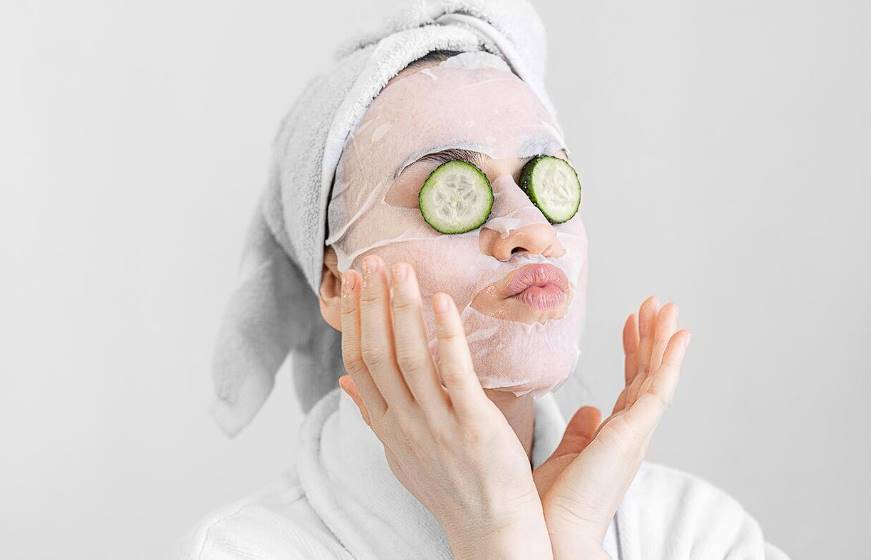
Sheet Masks
Sheet masks stand out as the go-to for those seeking a quick and effective skincare boost. Infused with antioxidants, vitamins, and botanical extracts, they offer numerous benefits, from hydration to brightening. Perfect for a spa-like experience at home, sheet masks are versatile enough for use at any time, be it day or night.
Mud Masks
For those grappling with oily skin and clogged pores, mud masks are often the preferred choice. While traditional mud masks can be messy and overly drying, innovative products, enriched with volcanic ash, offer precise application without any wastage. Incorporating such a mask weekly can help unclog pores and prep the skin for special occasions.
Maintain a sanitary environment while you work to improve your skin. Normal, combined, and oily skin types can all benefit from using this mask.
Clay Masks
Though closely related to mud masks in their purifying properties, clay masks can sometimes be harsh on dry or sensitive skin. However, they are particularly effective for oily skin types, ensuring a deep cleanse and balanced sebum production.
Sheet Masks Vs Clay Masks
Clay masks might have their benefits, but they can often be cumbersome to apply and remove. On the other hand, sheet masks offer a hassle-free experience, ensuring that the skin gets optimum exposure to the serum's benefits. It's recommended to let the skin absorb the serum post-removal rather than washing it off.
Charcoal Masks
Charcoal masks, once all the rage, continue to be a popular choice for many. Activated charcoal in these masks acts like a magnet, drawing out toxins and impurities, making them especially useful for those exposed to urban pollution. However, due to their potent detoxifying properties, it's best to use charcoal masks sparingly to prevent skin irritation.
Hydrogel Masks
When the skin feels parched, hydrogel masks come to the rescue. Using advanced gel technology, these masks provide the skin with a concentrated dose of hydrating ingredients, ideal for either starting the day with a fresh face or as a nighttime hydration boost.
Sheet Masks Vs Wash Off Masks
The face-off between these two is clear-cut. Sheet masks, owing to their ease of use and mess-free application, stand out. Moreover, the longer the skin remains in contact with the serum from the sheet mask, the better the results. Rinsing off post application can strip away the benefits, so it's advised to let the skin soak in all the goodness.
Face masks offer a targeted solution for various skin concerns. Whether you're aiming for hydration, detoxification, or brightening, there's a mask tailor-made for you.
5 Reasons to Apply a Face Mask
The world of skincare constantly evolves, and amidst this evolution, face masks have established themselves as a staple. Here's an in-depth look at why you should be including face masks in your skincare routine.
The Therapeutic Touch of Face Masks
Face masks go beyond the realm of just skincare; they provide a therapeutic experience. Infused with aromatic essential oils like rosemary and mint, they have the potential to elevate one's mood.
Allocating 20-30 minutes of 'me time' whilst having a mask on can be paired with activities like watching a series, scrolling through entertaining videos, or indulging in a warm bath. This sensory experience not only revitalises the skin but also calms the soul.
Dive Deep with Cleansing
While daily cleansing routines effectively remove surface dirt, makeup, and oils, face masks take this a notch higher. Often referred to as a skin 'detox', a good facial mask penetrates the deeper layers of the skin, revealing a cleaner complexion beneath. The profound cleansing properties of masks can visibly transform the texture of your skin, making pores appear reduced and refined.
Combat Clogged Pores with Clay Masks
Clay masks, especially those crafted with Bentonite and Kaolin clay, are renowned for detoxifying the skin and regulating oil production. Regularly applying these masks can aid in the removal of the accumulated layer of dead skin cells, thereby preventing the clogging of pores.
Clogged pores can lead to a myriad of skin issues like blemishes, breakouts, or even the occasional and much-dreaded pimple. With regular mask application, these issues can be kept at bay.
Illuminate Your Skin with a Radiant Glow
Certain masks, especially those tinged with invigorating ingredients like mint, stimulate blood circulation. The process of the mask drying and subsequently being removed can cause an expansion of the blood vessels. This results in an instantly brighter and more luminous complexion. Post-mask, your skin often feels rejuvenated, soft, and bursting with life.
Boosting Your Skincare Arsenal
A face mask acts as a primer for your other skincare products. By ensuring that the skin is deeply cleansed and pores are open, it enables better absorption of other products like serums, moisturisers, and sunscreens. Regularly incorporating a mask into your routine can amplify the effects of your other skincare products, ensuring faster and more visible results.
Face masks are more than just a luxury – they're an essential part of achieving and maintaining radiant skin. Whether you're addressing specific skin concerns or simply in the mood for some pampering, there's a face mask waiting to work wonders on your skin.
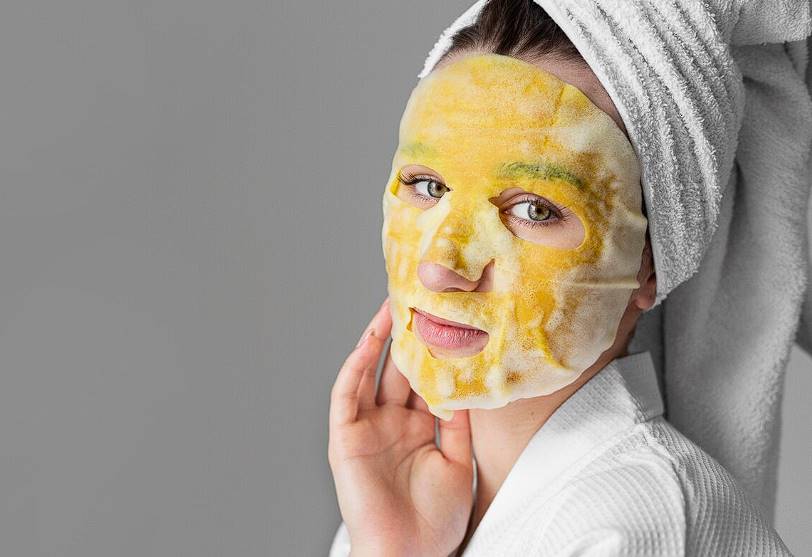
How to Apply a Face Mask in
It Doesn’t Have To Be Messy.
There is no need to worry about messing up the bathroom while applying a face mask in the bathtub. You may rest easy knowing you can hide your face, neck, and throat. Pull your hair back out of your face if you don't have time for a full shower.
If you don't want to get it on your clothes, avoid wearing anything that covers your neck. The application process may be messy, but the product itself dries quickly and is simple to remove.
Start With A Freshly Cleansed Face.
Before using your mask, use your regular cleanser to get rid of any excess oil, grime, or makeup. In this way, you can maximise the therapeutic effects of your face mask.
Using Damp Hands, Apply Your Mask Directly Onto Your Wet Skin.
There's a reason this is called a face mask. When you put it on, you should feel like you're hiding your face. Masks should never be applied by rubbing them into the skin.
The best way to use it is as icing on a cake. Don't get the mask in your eyes, make sure your nose is open, and wear it all the way down to your throat. There's nothing worse than having a youthful face but an aged, wrinkly neck, right? I always put as much care into my neck as I do my face.
Just Leave It On And Wait.
Ten to twenty minutes at your disposal; use them for whatever you like: relaxation, hair care, email checking, etc. Just remember to remove it at the recommended time and stick to the label's instructions. The advantages of the product are related to how it should be used. Make sure you stick to them for the best results.
It’s Time To Remove The Mask.
It is the purpose of a mask to stay put while you sleep. It's important to remove it carefully. Wash the mask off gently with lots of water and a washcloth. When drying off, pat rather than rub your skin.
When it comes to putting on a mask, it doesn't get any simpler than that.
An expert tip for removing a face mask: hold a warm, damp towel on your skin for a few seconds after the mask has dried. The face mask will be easier to remove off your skin if you do this several times. This advice will make rinsing off considerably less of a hassle and more kind to your skin.
Conclusion
A unique mask that keeps your skin glowing over time is the best face mask for clear skin. Clay masks, which are made of natural ingredients like bentonite or kaolin, are great for getting rid of dirt and oil, cleaning the skin, and opening up the pores. Face masks with activated charcoal can help reduce the look of flaws and fight bacteria that cause acne.
Niacinamide, which is also called vitamin B3, makes skin less red, calms skin that is itchy, and helps make the tone of your skin more even. Masks with fruit enzymes or alpha hydroxy acids (AHAs), which are natural exfoliants, gently remove dead skin cells to show younger, healthier skin below.
Sheet masks, mud masks, clay masks, charcoal masks, hydrogel masks, and wash-off masks are some of the different types of face masks that can be used for skin care. Sheet masks are easy to use, and make sure that you get the most out of the serum's benefits.
People used to wear charcoal masks all the time because they pulled out chemicals and dirt, which is especially helpful for people who live in polluted cities. Hydrogel masks have a lot of ingredients that moisturise, so they're great for starting the day or using at night to keep your skin moist.
Masks for the face can be used to treat a number of skin problems, such as dehydration, acne, or dullness. They are very important for keeping your skin tone healthy and improving your skin's general health.
With essential oils like rosemary and mint mixed in, face masks can be therapeutic and improve your mood while also reviving your skin. Bentonite and Kaolin clay masks can also be used to clean the skin by getting rid of surface dirt, makeup, and oils.
They can also be used to treat plugged pores. These masks get rid of dead skin cells and keep pores from getting clogged, which can cause skin problems like acne, spots, and breakouts.
Mixing masks with energising ingredients like mint increases blood flow, which makes the skin look better and healthier. Plus, they work as a base for other skin care products, making sure that serums, moisturisers, and sunscreens work better and clean the skin deeper.
To put on a face mask, wash your face and pat it dry. Then, use damp hands to put the mask directly on wet skin. Wear the mask all the way down to your throat, and don't rub it into your skin. Follow the directions on the package and leave the mask on for ten to twenty minutes before taking it off at the right time.
Taking off the mask is very important for how well it works, and you should wash it off slowly with water and a washcloth. It can be easier and better for the skin to rinse off if you hold a warm, wet towel against it for a few seconds after the mask is dry.
Content Summary
- Discover the best face mask tailored for clear skin.
- Achieve long-lasting skin glow with the right face mask.
- Clay masks with kaolin or bentonite offer deep cleansing benefits.
- Activated charcoal masks effectively reduce skin imperfections.
- Tea tree oil in masks combats acne-causing bacteria.
- Niacinamide, or vitamin B3, promotes even skin tone.
- Masks with natural exfoliants reveal fresher, brighter skin.
- Sheet masks provide an instant skincare boost.
- Mud masks enriched with volcanic ash unclog pores.
- Clay masks are effective for deep skin purification.
- Face masks outshine as a therapeutic skincare solution.
- Enjoy 20-30 minutes of 'me time' with a face mask on.
- Deep cleansing properties of masks refine skin texture.
- Bentonite and kaolin clay masks detoxify the skin.
- Masks with invigorating ingredients brighten the complexion.
- Regular masking can amplify the effects of other skincare products.
- Incorporating face masks is vital for radiant skin.
- Applying a face mask doesn't have to be a messy affair.
- Start your mask routine with a clean face for best results.
- Always apply a mask in thick, even layers.
- Avoid the eye area when applying your mask.
- Adhere to recommended mask application times for maximum benefits.
- Masks should be removed gently with ample water.
- Warm, damp towels aid in the mask removal process.
- Masks can enhance the serum penetration into the skin.
- Charcoal masks detoxify skin, making it ideal for urban dwellers.
- Hydrogel masks offer intense hydration for parched skin.
- Choose a mask based on individual skin concerns and needs.
- Regular cleansing routines get a boost with the right face mask.
- Sheet masks simplify the skincare regimen with a mess-free application.
- Maintain consistency in masking for optimal results.
- Pamper yourself with aromatic essential oils in face masks.
- Avoid overusing potent masks like those with charcoal to prevent irritation.
- Ensure that masks complement other products in your skincare arsenal.
- Experience the soothing effects of masks with mint and rosemary.
- Combat clogged pores and breakouts with regular mask application.
- Revitalise both the skin and soul with therapeutic masks.
- Navigate the wide variety of face masks available for specific skincare needs.
- Get advice on the best face masks for specific skin types.
- Mud masks offer a deep cleanse without over-drying the skin.
- Clay masks balance sebum production for oily skin types.
- Charcoal masks were once a skincare trend, but their benefits continue to be acknowledged.
- Remove face masks with care to retain their benefits.
- Dedicate time for face masks to elevate your skincare routine.
- Masks are more than a trend; they're essential for glowing skin.
- Know the distinction between sheet masks and wash-off masks.
- Masks provide a targeted solution for diverse skin concerns.
- Avoid sheet masks that neglect the neck or décolletage.
- Keep your skincare environment sanitary when using mud or clay masks.
- Find the ideal balance in your skincare regimen with the right face mask.
Frequently Asked Questions
Look for face masks containing ingredients like salicylic acid, clay, charcoal, or kaolin, which help in deep cleansing, exfoliating, and absorbing excess oil. Masks with natural ingredients like tea tree oil or aloe vera are also beneficial for soothing and clarifying the skin.
Yes, face masks with ingredients such as salicylic acid, benzoyl peroxide, or sulfur are particularly effective for acne-prone skin. These ingredients can help unclog pores, reduce inflammation, and target acne-causing bacteria, promoting clearer skin.
Yes, you can use hydrating masks even if you have oily or acne-prone skin. Look for masks with non-comedogenic ingredients like hyaluronic acid or glycerin. These ingredients hydrate the skin without clogging pores, providing moisture while maintaining clear skin.
The frequency of using a face mask depends on the mask's ingredients and your skin's needs. For masks designed for clearing the skin, using them once or twice a week is generally sufficient. Overusing masks can sometimes irritate the skin, so it's essential to follow the product's instructions.
Natural face masks made from ingredients like honey, yogurt, turmeric, or aloe vera can be effective for achieving clear skin, especially for mild skin concerns. However, it's crucial to ensure you are not allergic to any natural ingredients and to perform a patch test before applying the mask to your face. Additionally, consistency and proper application are key to seeing results with homemade masks.
